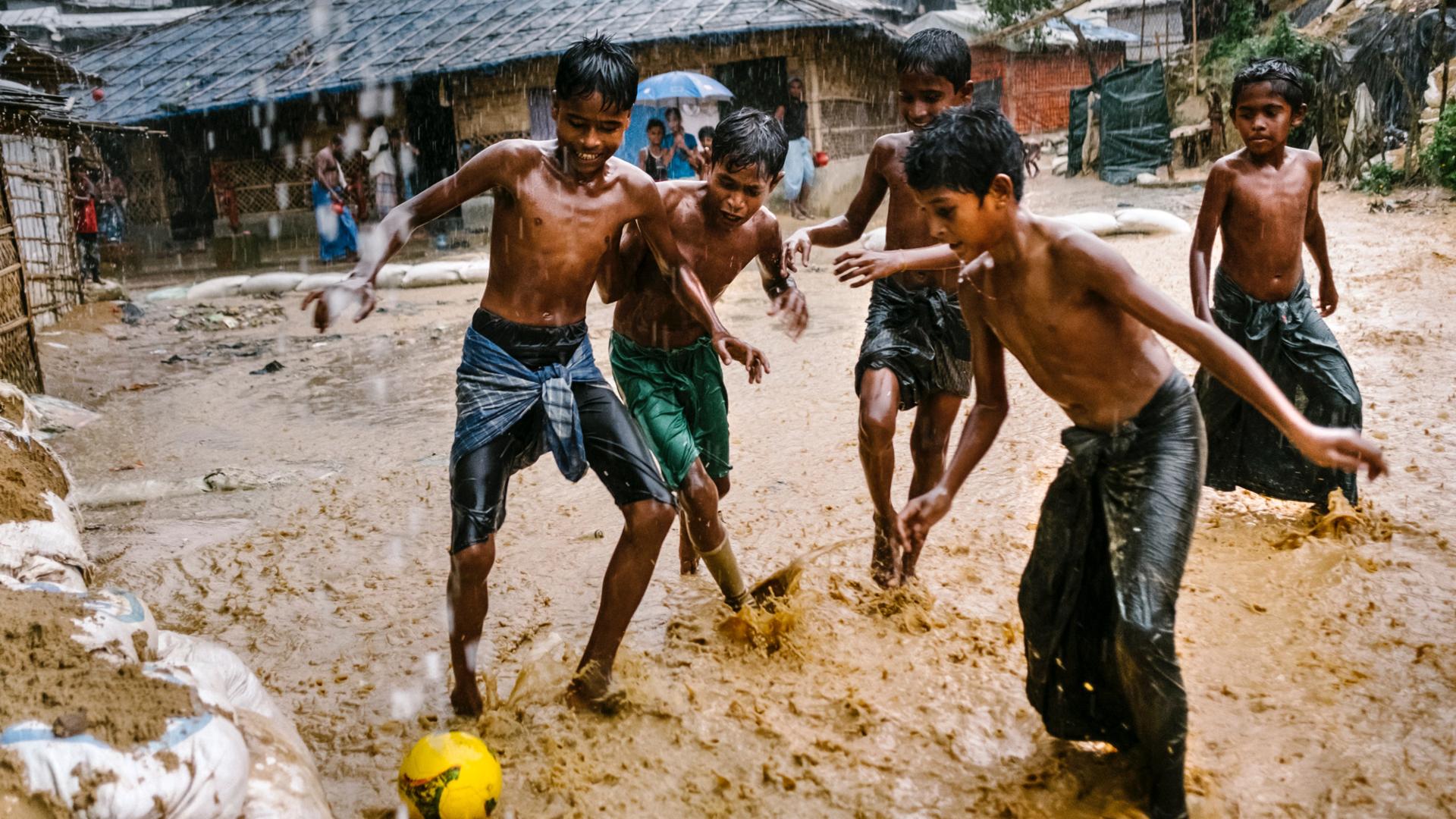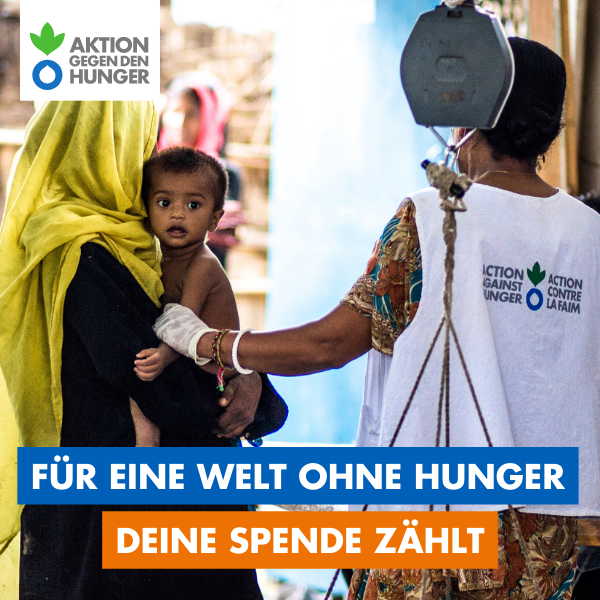
Within a few months, the Kutupalong refugee camp has become the biggest in the world. Out of sight, 700,000 people of the Rohingya Muslim minority fled Myanmar in 2017 to escape genocide and seek asylum in Bangladesh. Prisoners of a major, yet little publicized humanitarian crisis, Kalam, Mohammad, Montas and other exiles want to make their voice heard. Between poetry and nightmares, food distribution and soccer games, they testify to their daily realities and the ghosts of their past memories. Around them, the spectre of wandering, waiting, disappearing. In this place almost out of space and time, is it still possible to exist?
Much of Action Against Hunger's aid in Bangladesh is focused on the largest refugee camp in the world: Cox's Bazar. Our team supports local people with food, water and health services and provides psychosocial support. We are also working with local authorities to improve disaster preparedness. Two thirds of the people in Bangladesh live below the poverty line. Particularly hard hit are the more than 900,000 Rohingya who have fled Myanmar and live in refugee camps, which offer the people living there little protection against the frequent floods or storms.
- Year2021
- Runtime87 minutes
- DirectorMélanie Carrier, Olivier Higgins
Within a few months, the Kutupalong refugee camp has become the biggest in the world. Out of sight, 700,000 people of the Rohingya Muslim minority fled Myanmar in 2017 to escape genocide and seek asylum in Bangladesh. Prisoners of a major, yet little publicized humanitarian crisis, Kalam, Mohammad, Montas and other exiles want to make their voice heard. Between poetry and nightmares, food distribution and soccer games, they testify to their daily realities and the ghosts of their past memories. Around them, the spectre of wandering, waiting, disappearing. In this place almost out of space and time, is it still possible to exist?
Much of Action Against Hunger's aid in Bangladesh is focused on the largest refugee camp in the world: Cox's Bazar. Our team supports local people with food, water and health services and provides psychosocial support. We are also working with local authorities to improve disaster preparedness. Two thirds of the people in Bangladesh live below the poverty line. Particularly hard hit are the more than 900,000 Rohingya who have fled Myanmar and live in refugee camps, which offer the people living there little protection against the frequent floods or storms.
- Year2021
- Runtime87 minutes
- DirectorMélanie Carrier, Olivier Higgins
